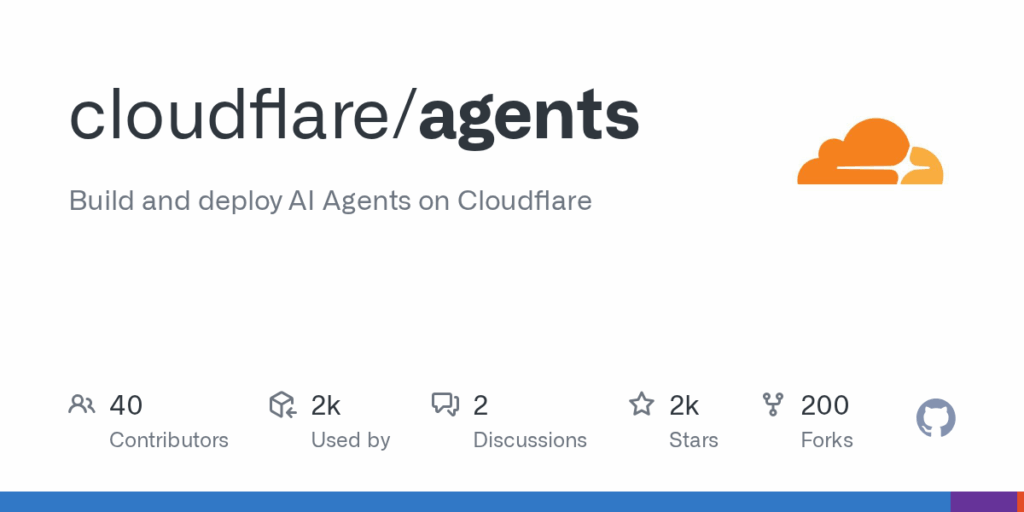agents
Basic Information
Cloudflare Agents is a framework and starter ecosystem for building intelligent, stateful agents that run at the edge. It is intended for developers who want to create agents that persist state and memory, engage in real-time communication, process and learn from interactions, and operate autonomously at global scale while hibernating when idle and awakening on demand. The repository provides a core agent framework with state management, real-time WebSocket support, HTTP endpoints and routing, React integration hooks, and basic AI chat capabilities. It includes documentation, guides and examples to help teams prototype and deploy agents, plus starter templates and an npm package to add the tooling to existing projects. The project is actively developed and distributed under the MIT license.








